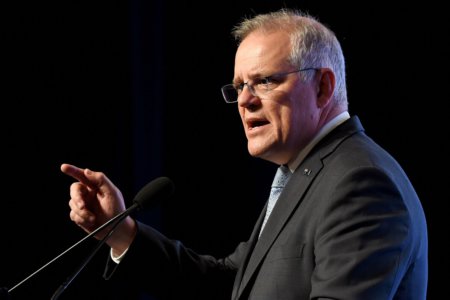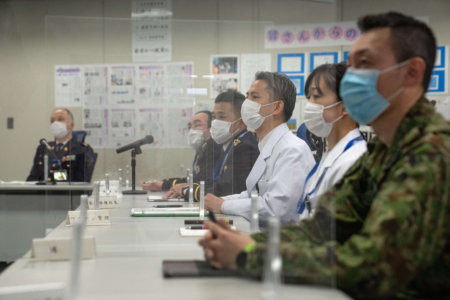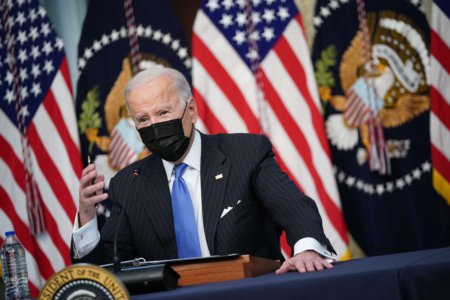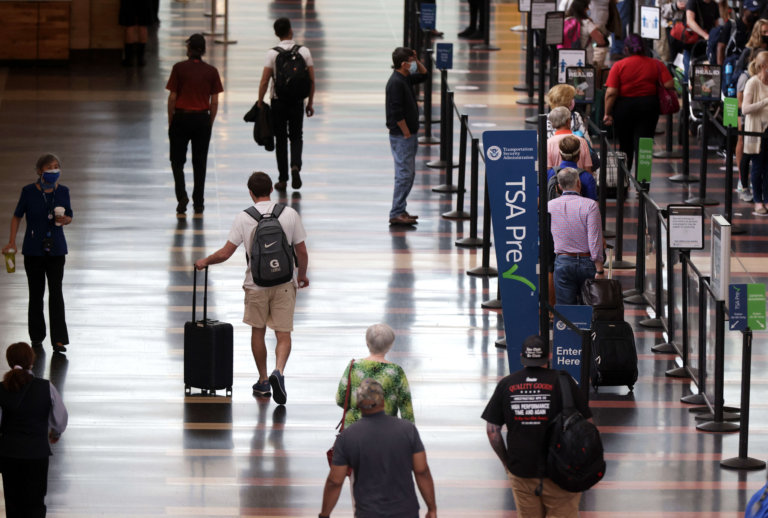
Are you an international student planning to study abroad in the coming months? If so, you may feel concerned about the new Omicron COVID-19 variant and the travel restrictions by country that arise from it.
International students all over the world have been affected by border restrictions and new travel measures as countries rush to better contain the virus. The rapidly developing situation means that these measures are being changed by the hour — resulting in uncertainty in what this means for students looking to study abroad.
Given this, it’s better to carefully consider your options. Here’s a list of travel restrictions by country in five major higher education locations:
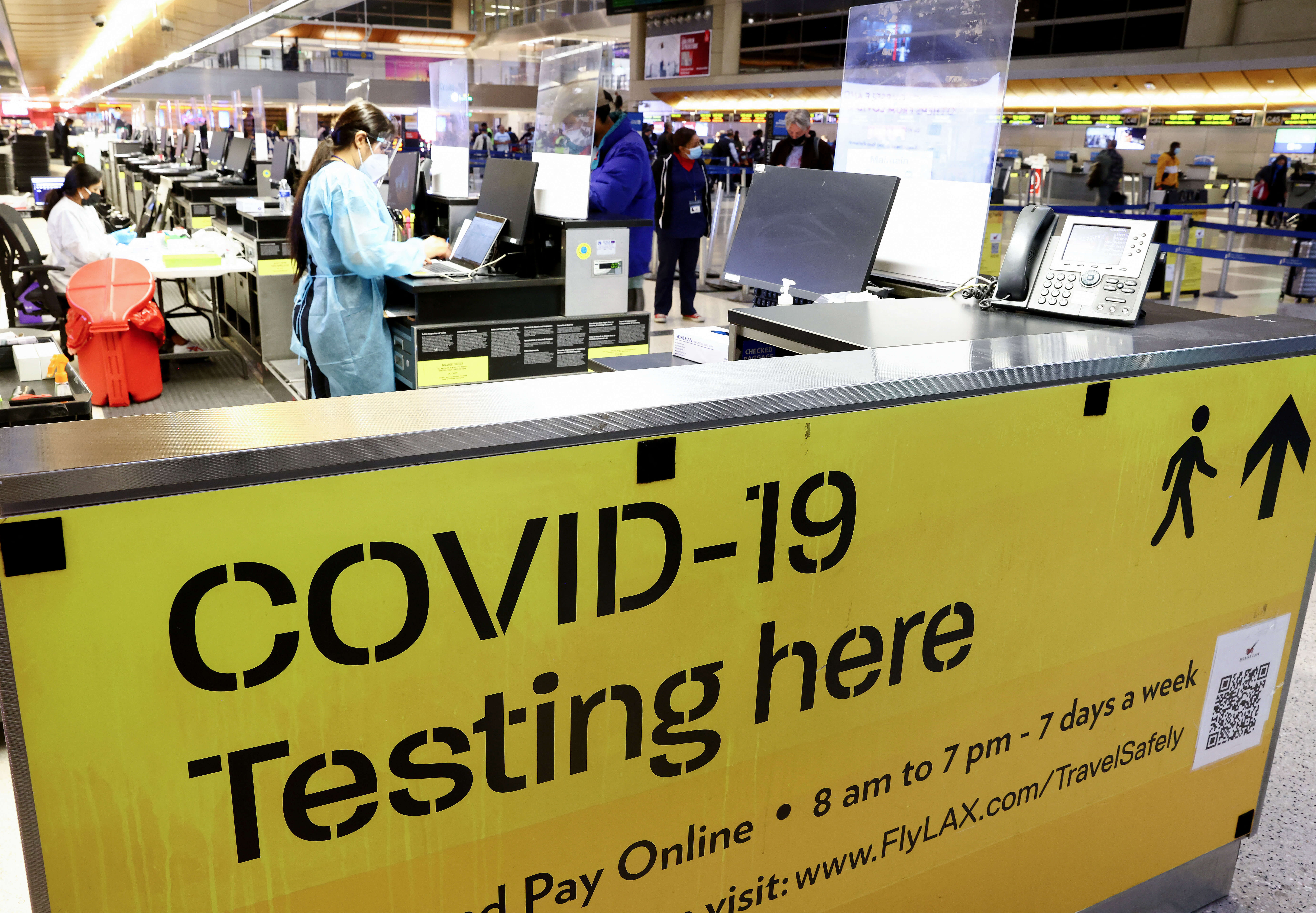
Many countries require visitors to present a negative COVID-19 test on arrival. Source: Mario Tama/Getty Images North America/Getty Images via AFP
US
At the time of writing, the US has barred non-citizens travelling from eight southern African countries from entering the country. This list includes South Africa, Botswana, Zimbabwe, Namibia, Lesotho, Eswatini, Mozambique and Malawi.
On Tuesday, US officials ordered airlines to disclose information about travellers from the eight countries within 24 hours of them arriving in the country. The Centre for Disease Control and Prevention is also imposing a new directive that all air travellers entering the country must show a negative COVID-19 test within one day of departure. Travellers may also need to self-quarantine for 7 days even if their results are negative.
Currently, travellers are only required to present a negative COVID-19 test within three days of landing in the country.
US President Joe Biden announced this as part of a broader strategy to contain the virus. Other measures include requiring travellers to wear masks on public transportation until mid-March. There is a strong possibility that stricter measures will be imposed as the situation develops.
Recently, the US identified their first case of the mutated Omicron virus in California on Wednesday. The patient had travelled from South Africa just a few weeks prior and is fully vaccinated.
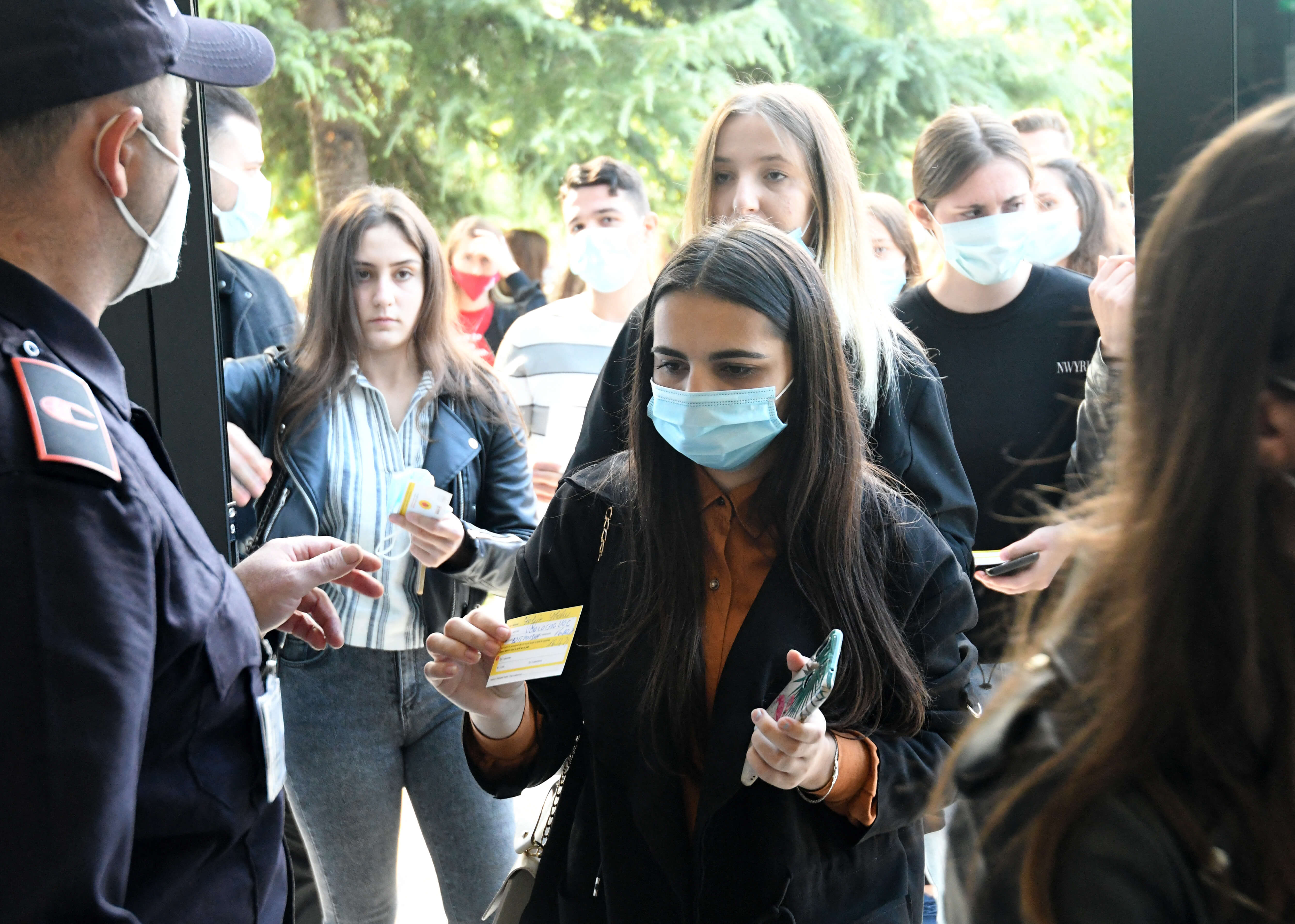
A student shows a vaccine passport as she enters the polytechnic university in Tirana on October 18, 2021. Source: Gent Shkullaku/AFP
UK
The UK has placed 10 African countries on its “red-list” after traces of the Omicron variant were found in the country. This includes Angola, Botswana, Eswatini, Lesotho, Malawi, Mozambique, Namibia, South Africa, Zambia and Zimbabwe. No one from these countries is allowed to enter the UK unless they are British or Irish nationals/residents.
All visitors from other countries are required to take a COVID-19 test within 48 hours of arrival in the UK. They are required to quarantine until a negative result is shown regardless of whether they are fully vaccinated or not.
At the time of writing, the UK has recorded 32 cases of the Omicron variant. Health officials warn that it is “very likely” that this figure will continue to increase in the coming days. This comes after government scientific advisers have said that the Omicron variant could cause the biggest wave of COVID-19 cases in the UK yet.
UK ministers have rushed to secure 114 million more vaccines for the next two years in response to the Omicron variant.
Germany
Germany is among many countries that have suspended flights from a list of southern African countries. At the moment, this includes Botswana, Eswatini, Lesotho, Malawi, Mozambique, Namibia, Zambia and Zimbabwe.
This comes after the country confirmed cases of the Omicron variant on Saturday. At the moment, any foreigner entering the country must be fully vaccinated at least 14 days before the date of travel. They must also show a negative COVID-19 test result depending on the place of departure.
No further measures that will affect international students travelling into the country have been implemented as of yet. Several German politicians, however, have called for a tightening of restrictions to contain the Omicron variant.
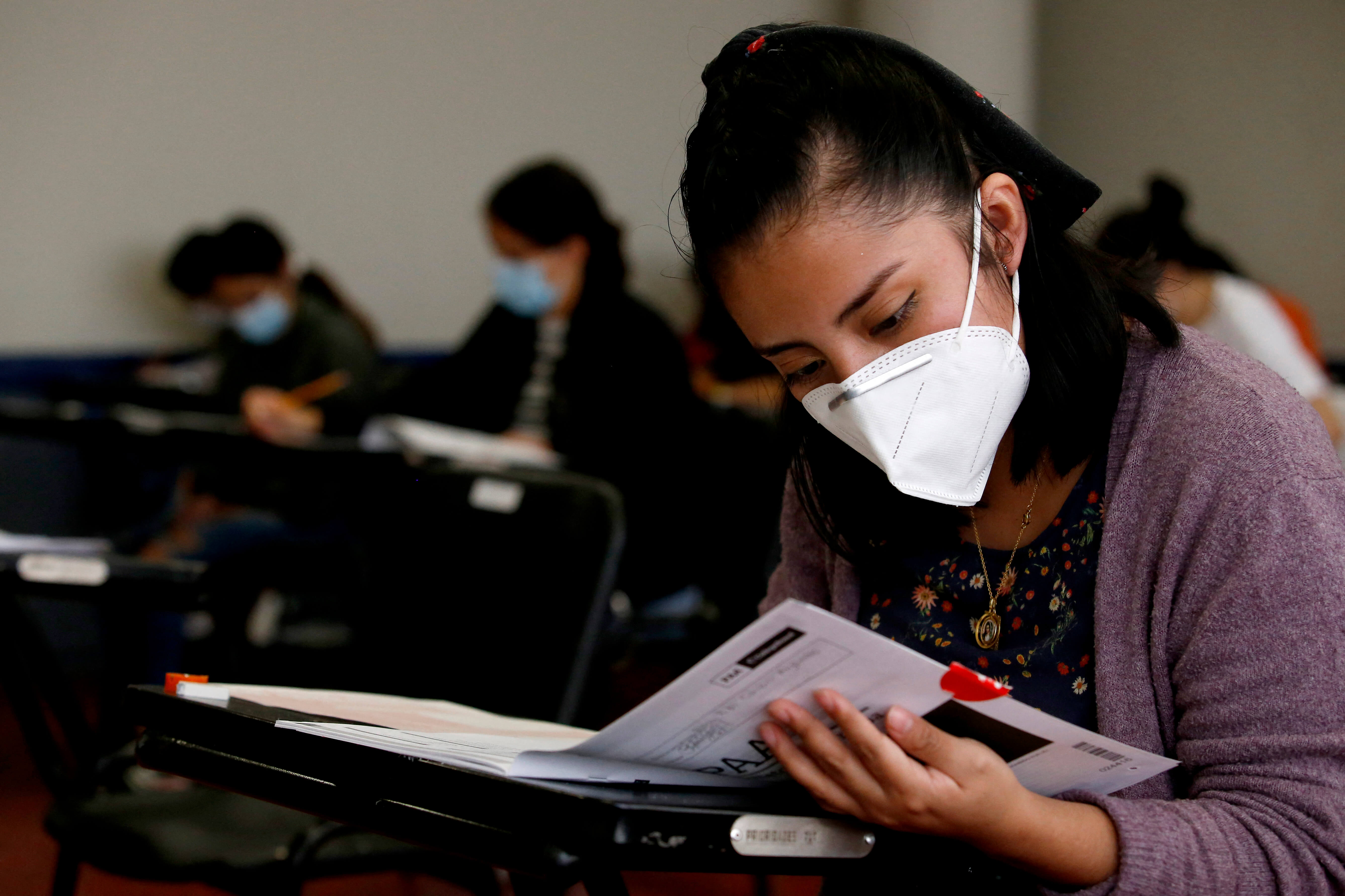
Mask wearing is mandated in many major higher education countries. Source: Ulises Ruiz/AFP
Australia
Australia has delayed the reopening of its borders to all foreigners to December 15, two weeks later than originally planned. This was poorly received by international students, many of whom are now unable to return for their studies after being locked out of the country for months on end.
At the moment, only Australian citizens and fully vaccinated visa holders are allowed to enter the country, with foreigners having to quarantine in a hotel for up to 14 days. However, international students have complained about the vague nature of these measures, as many have been barred from entering the country either way.
All flights to and from Botswana, Eswatini, Lesotho, Malawi, Mozambique, Namibia, Seychelles, South Africa and Zimbabwe have been suspended. Visitors from these countries have also been banned from entry until further notice.
New Zealand
New Zealand has some of the toughest border controls in the world. All foreign travellers have been barred from entry into the country after the first strains of the virus were found in 2020.
However, the country’s plans to gradually reopen borders will not be affected by the Omicron variant. This refers to New Zealand’s recent announcement to allow fully vaccinated international travellers into the country in 2022.
New Zealand’s borders will first open to citizens and residents travelling from Australia in January. Citizens and international travellers from the rest of the world will gradually be permitted entry from February.
In response to Omicron concerns, a New Zealand response minister said it was “probably inevitable” that the new strain would find its way into the country. However, he has assured citizens that the government is prepared for this possibility.








